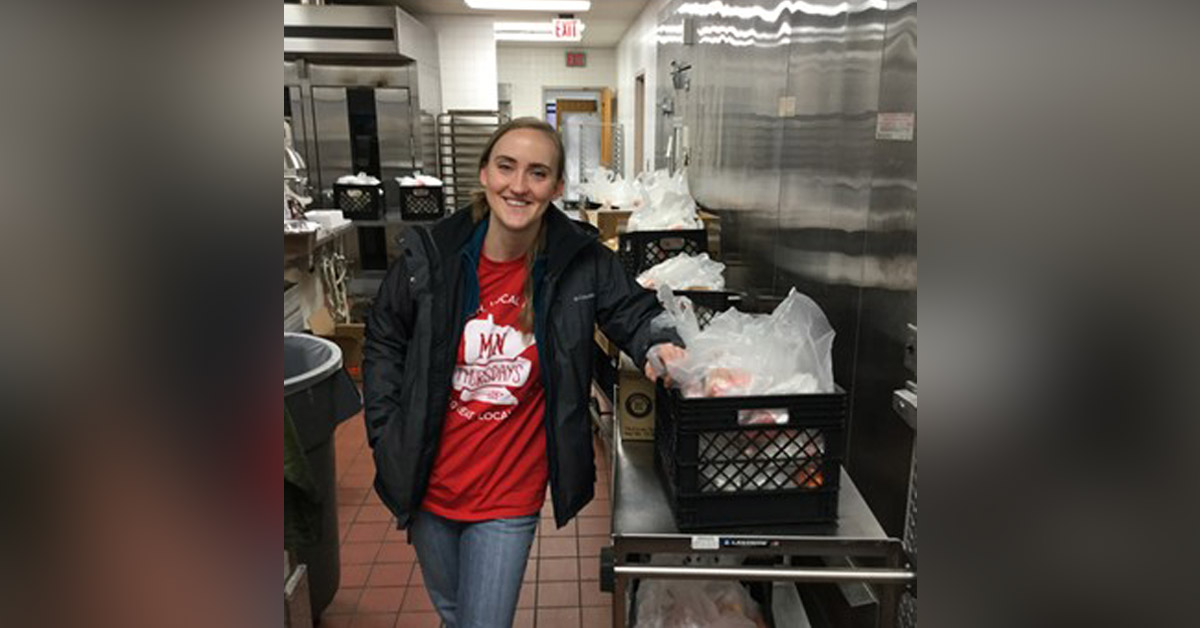Nutrition Services Supervisor
Roseville Area and St. Anthony/New Brighton Schools
Roseville, MN
“As some school districts are now serving more meals than food shelves, the pandemic has shed light on the large need for high quality, nutritious meals for the nation’s youth.”

What drew you to the field of public health?
I wanted to make a lasting impact and have an influence on people’s health by tackling issues before they get sick. In my current role in school nutrition serving 18 schools in two school districts, I have the opportunity to affect the dietary intake of thousands of children every day. Nothing is more satisfying than having children line up for another serving of cucumbers as if you were handing out candy.
In what ways are you tackling the COVID-19 outbreak?
In March, my team had approximately two days to mobilize and rethink our food service operation. During a normal summer when children are out of school, we work with summer school, summer camps, sports, and activities where children gather to feed. Since children can no longer gather, we had to think up a way to do non-congregate, grab-and-go style meals while making sure we get food to the families who need it. We came up with a total of three delivery methods to ensure all of our families who are at risk for food insecurity have access to food. We are able to provide two meals per weekday to our students plus shelf stable food items to get them through the weekend. We are now serving an average of 3,000 meals a day to kids ages 18 and under living in Roseville, St. Anthony, and New Brighton.
What are your thoughts about the current state of public health in relation to COVID-19?
I feel that school nutrition professionals — who have now become “essential staff” — have long been overlooked in their contributions to both closing the achievement gap in school systems and helping to ensure food security and good nutrition for children from at-risk communities. As some school districts are now serving more meals than food shelves, the pandemic has shed light on the large need for high quality, nutritious meals for the nation’s youth. Without these meals, we would be facing a public health malnutrition crisis.
Do you think this pandemic will inspire people to think about public health differently? How so?
I hope people will continue to see the tremendous value of school meals and the community support they provide, in addition to seeing school nutrition professionals for the hardworking heroes that they are. I hope that when funding for the Child Nutrition Reauthorization is considered, investments are made to support programs to provide quality meals, support crumbling kitchen infrastructure and equipment shortages, and allow room in the reimbursement rate to pay staff a living wage.

